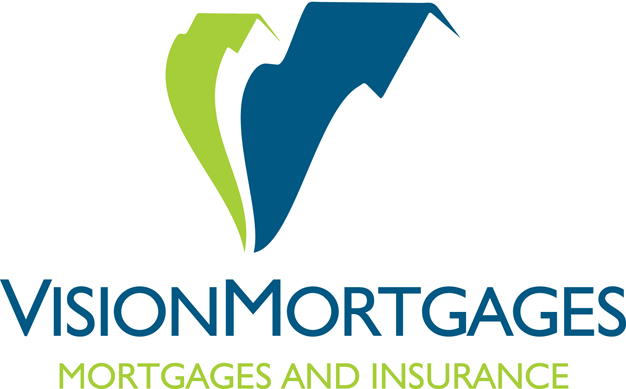What is a mortgage?
A mortgage is a loan you take out from a bank or building society to buy a property. You agree to pay back the money, plus interest, over a set period (often 25 to 30 years). The property itself is used as security for the loan, which means the lender can repossess it if you fail to make your repayments.
What does a mortgage broker do?
A mortgage broker acts as an intermediary between you and lenders, helping you find the most suitable mortgage deal based on your financial situation and goals.
We handle the application process, liaise with lenders on your behalf, and provide expert advice throughout, saving you time and potentially a lot of money.
Are you regulated?
Yes, all reputable UK mortgage brokers should be regulated by the Financial Conduct Authority (FCA). You can verify this on the FCA register. Our number is 480889What is an Agreement in Principle (AIP) or Decision in Principle (DIP)?
An AIP, often referred to as a DIP, is a statement from a lender that says, based on the information you have provided, they would likely lend you a certain amount of money. It is not a guarantee of a mortgage but is a strong indicator of your eligibility. Having a DIP is often required by estate agents before you can make an offer on a property.
What is the difference between a fixed-rate and a variable-rate mortgage?
- Fixed-Rate Mortgage: Your interest rate and monthly repayments remain the same for a set period. This offers stability and makes it easy to budget.
- Variable-Rate Mortgage: Your interest rate can change. This includes Tracker Mortgages (which follow the Bank of England base rate) and Standard Variable Rate (SVR) mortgages (set by the lender). While these can sometimes be cheaper, your repayments may increase unexpectedly.
What is LTV?
LTV stands for Loan to Value. It is the ratio of the mortgage amount to the property's value, expressed as a percentage. For example, if you are buying a £200,000 property with a £20,000 deposit, your mortgage will be £180,000. The LTV would be 90% (£180,000 / £200,000 x 100). The lower your LTV, the better the interest rate you can often secure.
What documents will I need to provide?
To get a mortgage, you will typically need to provide proof of:
- Proof of Income: Your last four months' payslips, P60 form, or tax returns (SA302) if you are self-employed.
- Bank Statements: To show your regular income and outgoings.
- Proof of Identification and Address: We generally obtain an electronic check, however if this fails for any reason then we may need your passport and or diving licence
What is the average time it takes to get a mortgage?
From the initial application to receiving the mortgage offer, the process typically takes between 1 to 4 weeks. However, this can vary significantly depending on the complexity of your case, the lender's workload, and how quickly you can provide the required documents.
How much do your services cost?
As a mortgage broker, we charge a fee for our services. We’ll always be transparent about any costs before you proceed. Typically for a new purchase this will be £295 and it reflects the comprehensive advice and dedicated support we provide throughout the entire process. We will always discuss this with you before starting any work.
What is stamp duty and do I have to pay it?
Stamp Duty Land Tax (SDLT) is a tax you must pay when you buy a property or land over a certain price in England and Northern Ireland. The amount you pay depends on the property's value and your circumstances (e.g., if you are a first-time buyer). We can help you understand the current rates and how much you will need to budget for.
What is the difference between a repayment mortgage and an interest-only mortgage?
- Repayment Mortgage (Capital and Interest): Your monthly payments cover both the interest on the loan and a portion of the original capital. At the end of the term, your mortgage will be fully paid off.
- Interest-Only Mortgage: Your monthly payments only cover the interest on the loan. The original capital remains outstanding and must be repaid in full at the end of the term, typically through a separate investment vehicle or sale of the property. Interest-only mortgages are generally for specific circumstances and can carry a higher risk.
Vision Mortgages - Mortgages, Insurance, Protection
Contact
Reg. address Rose Cottage, Highfield Lane, Trumfleet, Doncaster, DN6 0DU
01302 613302 or 01924 823437
info@visionmortgage.co.ukQuick Links
There may be a fee for arranging a mortgage and the precise amount will depend on your circumstances. This will typically be £295
Your home maybe repossessed if you do not keep up repayments on your mortgage.
As with all insurance policies, conditions and exclusions will apply.
Christopher Southworth, trading as Vision Mortgages, is an appointed representative of Stonebridge Mortgage Solutions Ltd, which is authorised and regulated by the Financial Conduct Authority. FCA number 480889
© 2025 Vision Mortgages. Any use of materials on this site without prior written confirmation is strictly prohibited.
The information contained within this website is subject to the UK regulatory regime and is therefore primarily targeted at consumers based in the UK

